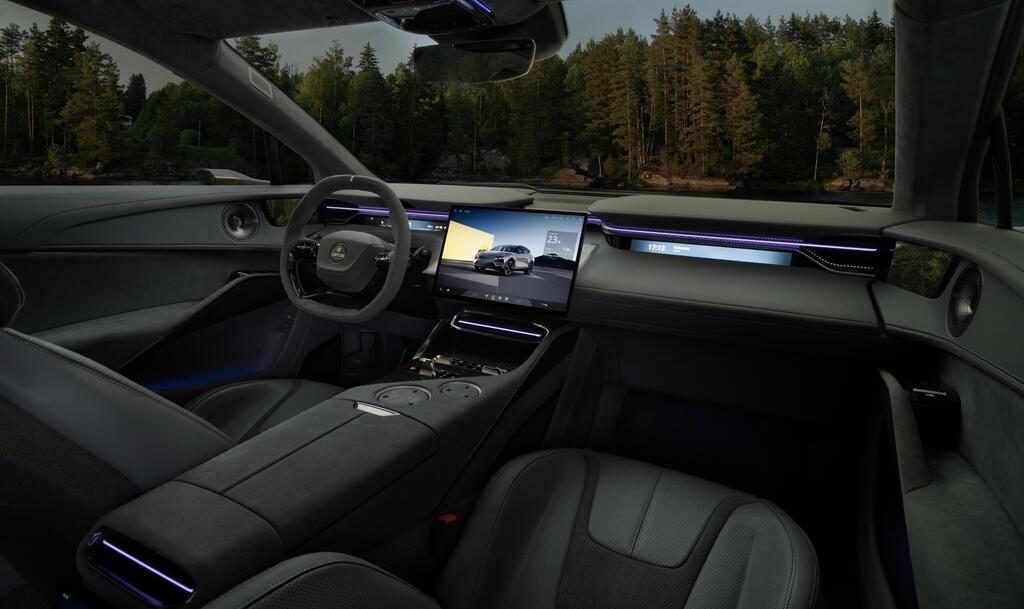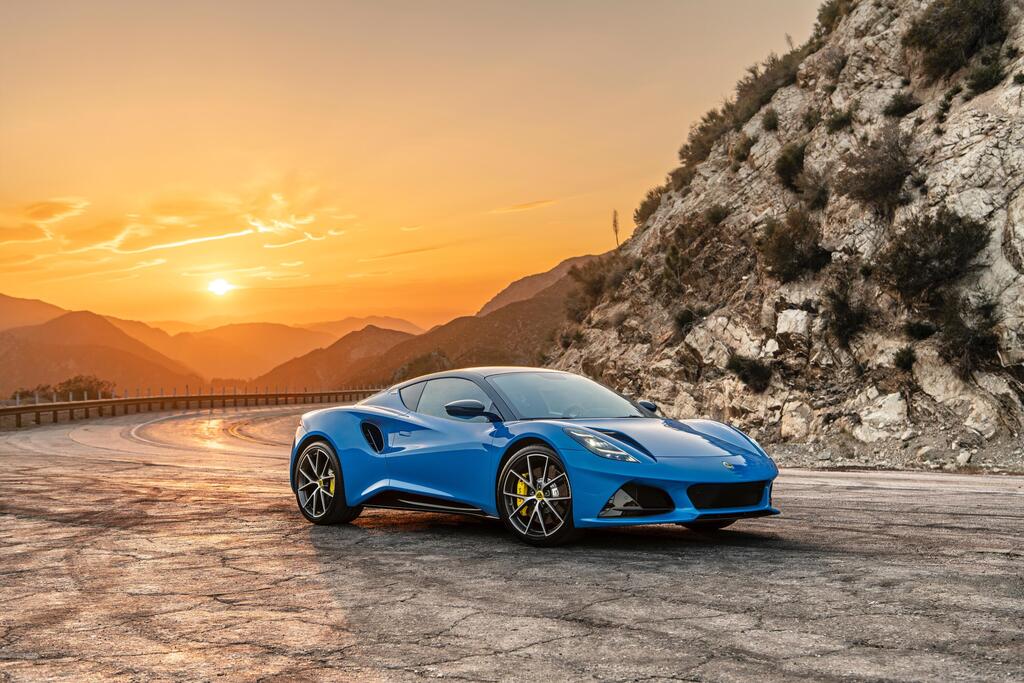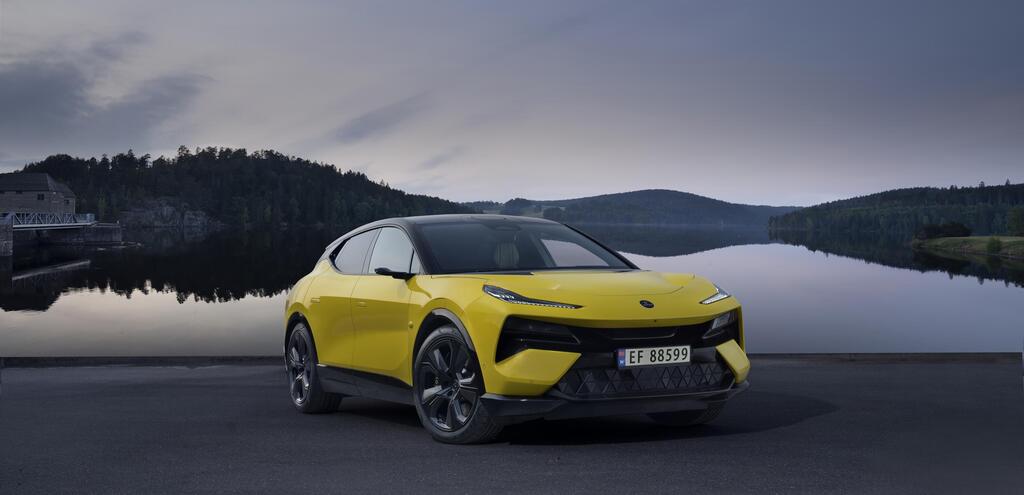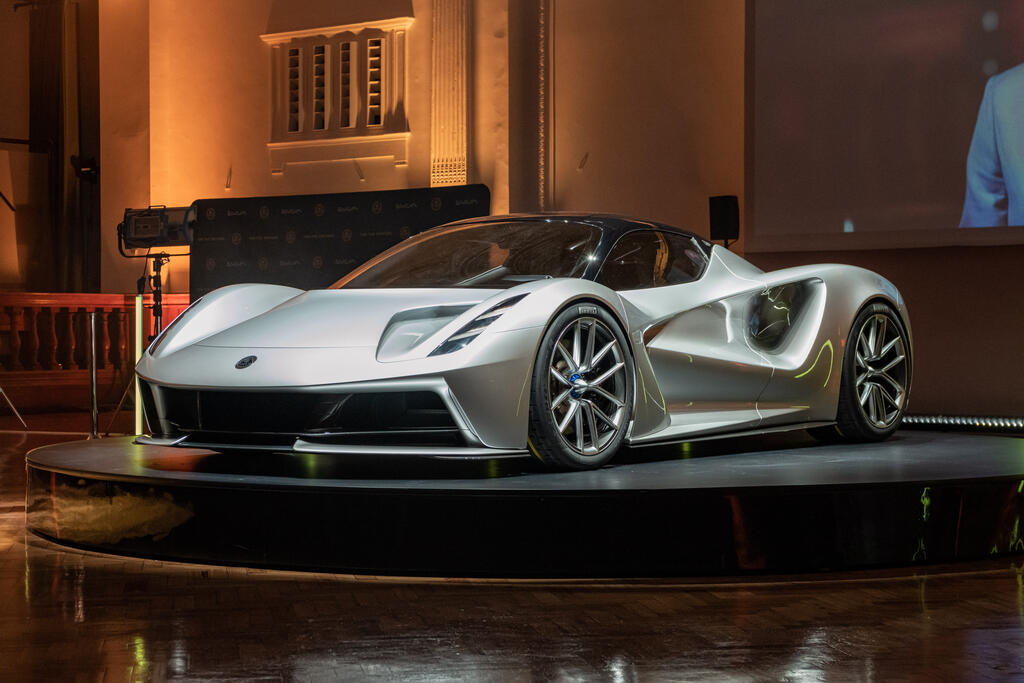Renowned British sports brand Lotus, which was acquired by Chinese company Geely, is set to make its first regular import to Israel through EV-Motors.
More stories:
Ynet has learned that a franchise agreement between the young importer, who also holds import rights for Chinese brands JAC and WM alongside LEVC models, is expected to be signed soon, with marketing expected to begin in the coming months.
British heritage
Lotus was founded 75 years ago by Colin Chapman, considered one of the iconic figures in the automotive industry of the mid-20th century. In the 1960s and 1970s, Lotus achieved exceptional dominance in Formula 1 racing (with seven world championships for the manufacturer, and six for drivers) thanks to a series of technological innovations and developments that propelled them to the forefront.
Along the way, it also made unforgettable appearances with the Esprit, featured in two James Bond films - The Spy Who Loved Me (1977) and For Your Eyes Only (1981).
In addition to car manufacturing, Lotus also has a separate engineering division that has assisted and continues to assist other manufacturers in improving the dynamic capabilities of various models.
The list includes DMC DeLorean, the first-generation Corvette ZR2, the Vauxhall Carlton, which was the world's fastest four-door car in the early 1990s, and even the first Tesla, the Roadster, which was built based on the Lotus Elise, and many others.
Is Porsche feeling the heat?
The first model that Lotus will market in Israel is the Emira, a sports car with a central engine and rear-wheel drive that shines in a category where companies like Porsche Cayman and, of course, the recently launched Alpine A110 excel. It will also be the last gasoline-powered car that Lotus produces before making a sweeping transition to electric.
The Emira comes with two propulsion systems: one is sourced from Mercedes-AMG—a turbocharged 2.0-liter four-cylinder gasoline engine with 365 horsepower connected to an eight-speed dual-clutch transmission. The second one is provided by Toyota—a 3.5-liter V6 engine assisted by a supercharger, delivering 405 horsepower and paired with a six-speed manual transmission.
Unlike its direct competitors from Germany and France, Lotus does offer active safety systems, including autonomous braking, adaptive cruise control and lane departure warning with blind-spot monitoring.
Electric future
The second model to be unveiled here is the Eltre, the first electric vehicle from Lotus featuring more than two doors. The electric luxury hypercar will be based on the company's Electric Premium Architecture (EPA) platform and will be offered with a choice of two powertrain options (dual-motor setup). The first option will provide 603 horsepower, allowing for a 0-60 mph time of 4.3 seconds, while the R version will deliver 905 horsepower which can do the same sprint in just under 3 seconds.
Both versions will come with a 112 kWh battery pack operating at 800 volts, providing a range of 600 km (373 miles) or 490 km (304 miles) for the R version. Fast charging (350 kW) will enable a 10% to 80% charge in 20 minutes or an additional 120 km (75 miles) in just 5 minutes
Lotus guarantees high dynamic capabilities thanks to adaptive air dampers, active stabilizer bars, active rear-wheel steering and carbon-ceramic brakes with 10-piston calipers.
Following the Eltre, another sedan, which has yet to be revealed and will be based on the same platform and feature similar powertrain systems, will also join the lineup to compete with the Porsche Taycan. The Evija, an electric hypercar with over 2,000 horsepower and a price tag starting at $2 million, is unlikely to also make Aliyah.
Our two cents
Lotus has been regarded as one of the most esteemed manufacturers in the automotive industry, primarily due to its exceptional dynamic capabilities that characterize all of its models. However, it has struggled thus far to translate these qualities into commercial success.
Under the ownership of Chinese company Geely, it appears that Lotus could potentially become a significant player in the car market. Currently, with a globally esteemed sports car, and even more so in the future with the integration of electric propulsion systems in versatile vehicle configurations, Lotus will be able to establish its presence in popular categories where it has never been before.
Moreover, the Israeli car market has experienced an unprecedented boom in recent years, especially in sports car sales. For example, Porsche moved a record of about 250 cars last year, including around 100 sports cars (718 and 911 models). Ferrari delivered 19 cars last year and is expected to achieve a similar figure in the first half of this current year. Not to mention the imported personal vehicles or equivalents of Lamborghini and Chevrolet Corvette models that hit the roads in the dozens. Lotus will undoubtedly benefit from this thriving market.





